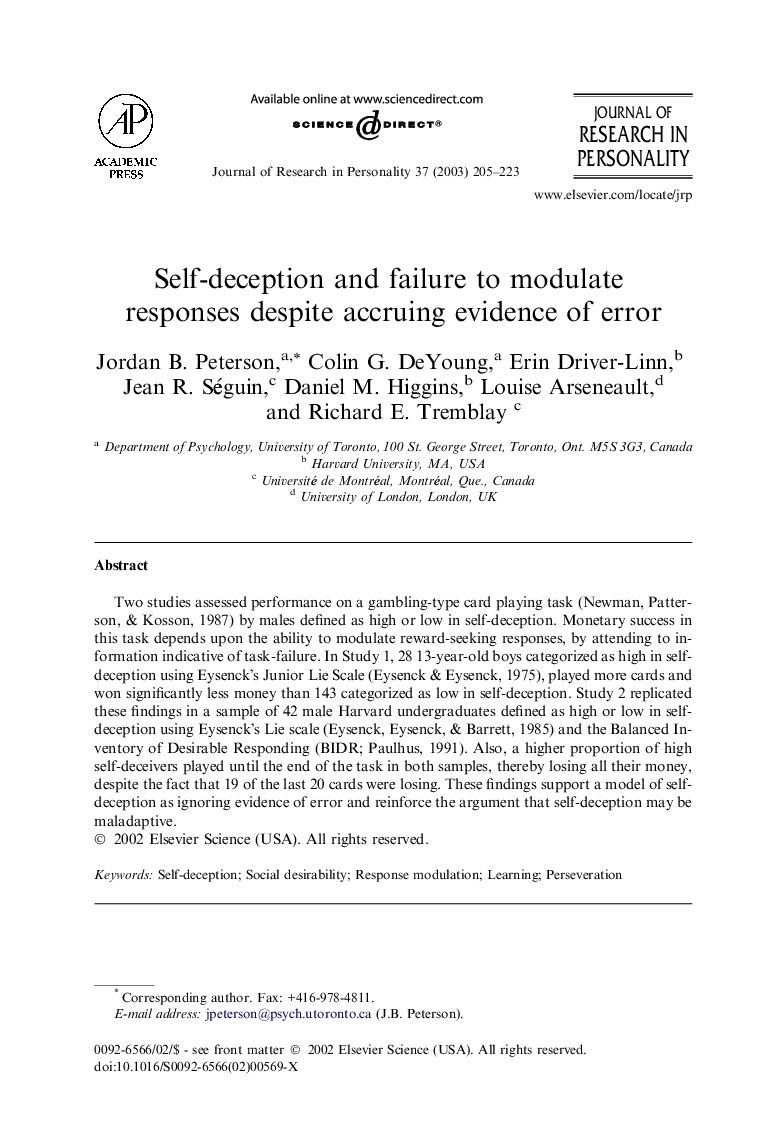ترجمه فارسی عنوان مقاله
خودفریبی و شکست برای تعدیل کردن واکنشها به رغم شواهد حاصل از خطا
عنوان انگلیسی
Self-deception and failure to modulate responses despite accruing evidence of error
| کد مقاله | سال انتشار | تعداد صفحات مقاله انگلیسی |
|---|---|---|
| 70798 | 2003 | 19 صفحه PDF |
منبع

Publisher : Elsevier - Science Direct (الزویر - ساینس دایرکت)
Journal : Journal of Research in Personality, Volume 37, Issue 3, June 2003, Pages 205–223
ترجمه کلمات کلیدی
خود فریبی؛ مطلوبیت اجتماعی؛ مدولاسیون پاسخ؛ یادگیری؛ تداوم
کلمات کلیدی انگلیسی
Self-deception; Social desirability; Response modulation; Learning; Perseveration

